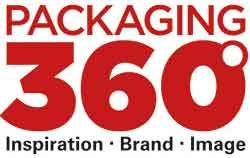Modular solutions instead of an all-purpose approach
The market for packaging machines has been in a state of flux. Suppliers of high-quality and extremely complex systems are under massive pressure. Once lucrative markets have collapsed, and suppliers now have to face new challenges and, often, radically rethink.
by Hertha-Margarethe Kerz
German packaging machinery manufacturers are alarmed. Due to changed production strategies, increasing individualisation and shorter innovation cycles, more and more customers are deciding against high-priced top products “made in Germany”. They prefer less expensive packaging machines, even if these have a significantly shorter life cycle. In addition, customers are increasingly turning their attention to the Asian market. This is because the assumption ten years ago by the VDMA and others that Chinese suppliers were unlikely to be serious competition soon for established Western manufacturers proved wrong. Asian products have long been accepted, with customers worldwide showing growing interest in these machines. The reason is that they have developed considerably from their original rather poor quality, and are now targeting the same middle market segment that the German mechanical engineering industry needs to tap for further growth. And German suppliers are noticing that their highly engineered, high-quality machines are no longer in such demand as they were only recently.
Mechanical engineering companies face a wide range of challenges
To succeed, they have to overcome a host of challenges, including expanding market monitoring and development, improving customer loyalty through innovative services, and intensifying R&D activities. At the same time, however, they must also respond to the shortage of skilled workers, deal with trade barriers and increasing environmental regulations, and stay in touch with automation, digitization and Industry 4.0.
Manufacturers’ strategies vary and depend heavily on how far a market has developed. “In established markets, productivity and availability are key criteria,” explains Markus Waterkamp, Managing Director of Kroenert GmbH & Co KG. „As a result, systems are often purpose-built and optimally tailored to a product. In developing markets, the focus is on the variability of the plant, the diversity of products and the scalability in capacity and product.”
While some market observers warn of the major risks, others are confident. They justify this by pointing to the wide range of activities that the German packaging machinery industry has developed most recently. For example, more and more suppliers are opting for modular systems, where suppliers offer a basic machine that can be upgraded required with additional components which can be exchanged, coupled or reconfigured, all as required. Further, innovative modules, such as collaborating robots, can be integrated to perform additional functions.
The advantages for the customer are obvious: they can put a machine together themselves, using only the components they actually need, and the price is based solely on the quantity of elements used. “For some years now we have been noticing increased demand for compact machines and systems which allow better utilisation of production facilities”, confirms Peter Lökös, Vice President Sales, of Rowema GmbH. “Modular solutions are particularly attractive for customers who manufacture a large number of products and want to switch between different forms of packaging.”
In many cases, retrofits and used machines are the best alternative
For manufacturers of modular solutions this means that they must offer a whole range of machine components. Conversely, it creates an opportunity to target new customer groups and stand out with additional services. One example is intensive consulting for plant planning and combining machines. This ensures that systems are perfectly matched to each other, the production process runs smoothly, and later extensions and adjustments can be considered and implemented without problems right from the start. However, the ideal situation of compatibility of packaging machines across manufacturer boundaries, remains a pipe dream for various reasons, some of which the customer is responsible for.
Another indispensable service is comprehensive remote maintenance, where the manufacturer’s highly qualified experts – possibly using the latest augmented or virtual reality technology – provide the fastest possible troubleshooting. To retain customers, manufacturers occasionally have to act as a fair partner and hold back from selling new machines. There are certain problems for which a retrofit or used machine is the best solution. A retrofit will be better if the machine is still relatively new, probably has many years ahead of it, and can be upgraded. A used machine will be better if it is a relatively short-term operation for which the purchase of a new module, let alone a new machine, is out of the question. In case of doubt, the machine manufacturer must then deliberately accept a short-term loss, with the hope of retaining the customer in the long term.
To increase competitiveness, new approaches are needed, not only at the interface with the customer but also internally. One central component is the training and further education of the company’s own employees. German industry currently spends an impressive EUR 30 billion on this. However, what is important is not maximising investment but employee training which exactly meets company needs. Other important components are internal networking of employees, building attractive knowledge bases, and creating an innovation culture within the company.
The linchpin here is the service staff, as they are in constant contact with the customer. They know the strengths and weaknesses of both their own and competitor products. They know what the customer’s concerns are, what they demand from their suppliers, and what challenges they face in the short and medium term. And they often also have a good sense of when the customer is looking at a new purchase, and what is particularly important to them. Making use of this comprehensive know-how for the further development of their own products and the company will become one of the central tasks for top decision-makers in future, because the steady shortening of innovation cycles on the market mean that their own time-to-market must also be constantly reduced. Continuous optimisation of work processes is accordingly essential, not only in the research and development department.
Taking a broader view and being open to cooperation are guarantees for success
To achieve this goal, however, it is worth taking a broader view i.e. beyond your own company boundaries. First, there is the German research scene, which is vitally important to the competitiveness of the packaging machinery industry. The wealth of private and publicly funded institutes promote the innovation process, and in many cases can also be a source of highly interesting cooperation partners. Second, a review of competitors is extremely interesting. Cooperation with other players is often essential in mastering the many challenges of the market. For example, Packaging Valley e. V. and the Packaging Excellence Center were founded in Baden-Württemberg for this purpose. These are the two largest and most successful networks in the packaging industry. And finally, machine manufacturers naturally also have to monitor foreign markets, because it is essential for German suppliers to establish themselves abroad, despite the difficult environments and infrastructures. China and India are particularly interesting targets here, even though investment conditions in China are still not ideal and demand in India is concentrated primarily on machines from the lower and middle market segment. Smart products are therefore in great demand in these markets. “Leaner solutions are much in demand, both abroad and in Germany,” says Martin Schorbach, Vice President Business Development Pneumatic Automation at Festo Vertriebs GmbH & Co. KG. “It’s a good thing that we started on this issue years ago.”
When do customers turn to the top players in the respective market segment and when to smaller, cheaper suppliers? In general, the experts agree that market and technology leaders in their respective industries often also turn to the technology leaders in the packaging machinery industry. If, on the other hand, less powerful or consultation-intensive systems are in demand, other suppliers also come into play. Since in this case the packaging machines are very comparable, customers usually attach great importance to additional services, such as consulting and service. Here, the nationally and internationally renowned German manufacturers are well positioned and equipped for the future. They have understood that 7 powerful, functionally oversized machines are in many cases no longer the best solution, and have adapted accordingly.
German packaging machine manufacturers can look confidently to the future
And the next generation of mechanical engineering companies is already in the starting blocks. They are highly motivated and innovative, and they have great drive and courage. They are proving this in their first “Hacking Engineering Hackathon” – a new platform for innovation, where start-ups have successfully developed solutions for industrial companies. The platform was launched by the German Mechanical Engineering Industry Association (VDMA) and Fraunhofer Venture. Start-ups and researchers come together with engineers, hardware and software developers and UX designers to find solutions for real-world problems. Fraunhofer technologies are available to the teams for this purpose. „The cooperation with the leading companies in the respective packaging segment ensures that the best solutions are offered and implemented from a broad pool of ideas, dynamics and market knowledge,” Stefan Dangel, Sales and Marketing Director of Sealpac GmbH, confidently states.



